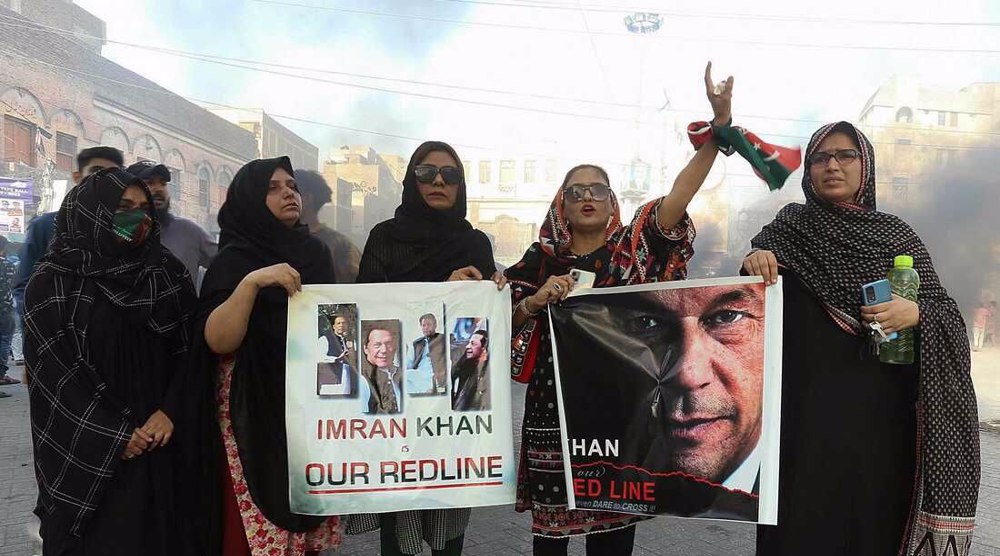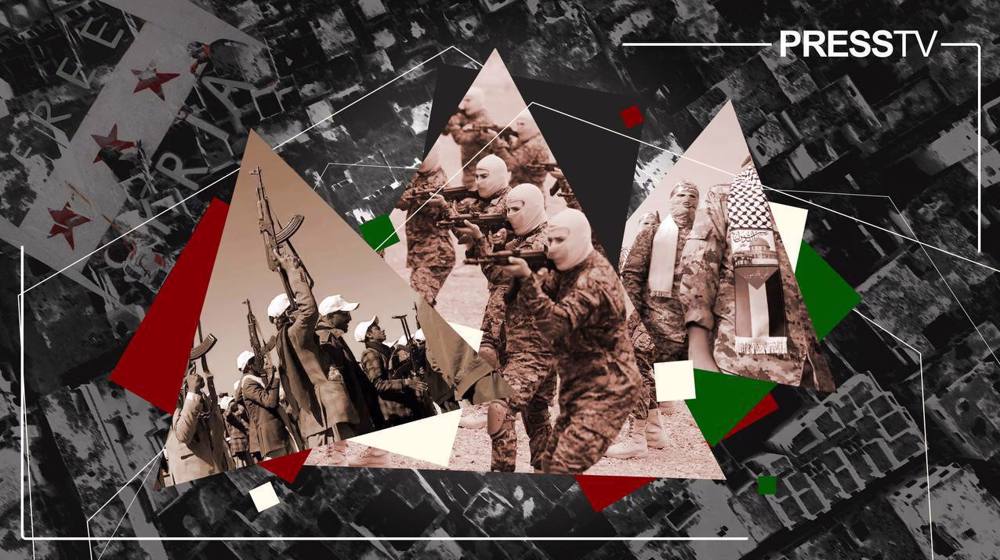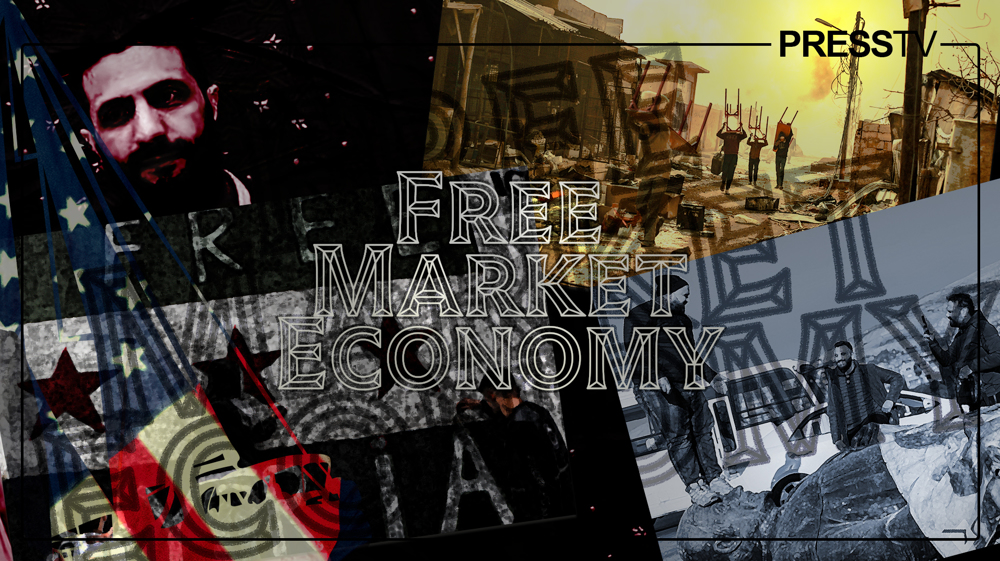Imran Khan's arrest in graft case shakes Pakistan's fragile democracy
By Sana Batool
Pakistan's tumultuous political landscape is again in the international spotlight amid widespread protests sweeping the country in response to the arrest of and subsequent release of former prime minister Imran Khan.
Although the country's supreme court declared Khan's detention illegal and ordered his immediate release on Thursday, his party supporters continue demonstrations against Pakistan's law enforcement agencies and government in major urban centers across the country.
The apex court has mandated that Khan receive police protection at Islamabad's Police Lines compound, where he was previously held after his arrest on Tuesday.
The cricketer-turned-politician and former prime minister was charged and detained in a corruption case on Wednesday, igniting a firestorm of anger and indignation amongst his loyal supporters who took to the streets to demand his unconditional release.
Khan's legal woes have continued to mount since his removal from power through a parliamentary no-confidence vote last year, with over 100 cases ranging from corruption and terrorism to blasphemy now looming over his eventful political career.
His recent arrest was linked to the Al-Qadir Trust case, which first surfaced during the tenure of incumbent Prime Minister Shehbaz Sharif's government in June 2022.
The case revolves around accusations that Khan and his spouse Bushra Bibi procured land worth billions of rupees from the prominent Pakistani real estate tycoon, Malik Riaz, for the establishment of an educational institution under the Al-Qadir University Trust during his time in the prime minister's office.
The National Accountability Bureau (NAB) alleges that Khan's Pakistan e Tehreek Insaaf (PTI) administration entered into a quid pro quo agreement with Riaz, whereby they allegedly facilitated the laundering of over $239m and caused considerable harm to the national exchequer.
The detention of Khan resulted in extensive demonstrations throughout Pakistan, as PTI followers poured into the streets and indulged in acts of vandalism, including setting government and military installations, such as the corps commander's house in the city of Lahore, ablaze.
PTI party loyalists also set fire to public edifices, buses, and toll plazas in multiple cities of Pakistan. The unrest led to the complete burning down of one school, according to reports.
The government sought the assistance of the military in response to the demonstrations, and access to various social media platforms, including Twitter, Facebook, and Instagram, was blocked, along with mobile broadband services.
The situation on the ground remained volatile even on Thursday with tensions running high due to restrictions and ongoing protests.
More than 100 police cases have been registered against Khan by the incumbent Sharif-led government since his removal from power in April 2022 after he lost a confidence vote in parliament.
The ongoing controversy surrounding Khan and his party reflects the broader political instability in the country. The military has long played a dominant role in the country's politics, and it has been accused of supporting Khan's PTI government in Pakistan's 2018 general elections.
However, Khan's recent falling out with the military over senior military appointments and policy decisions has raised concerns about the military's impartiality in the country's political affairs.
Khan's opponents have accused him of corruption and mismanagement, while his supporters contend that these allegations are politically motivated.
The situation has been further complicated by Khan's accusations against DG-C Maj Gen Faisal Naseer, a senior intelligence officer, whom he has accused of involvement in an assassination attempt against him in November last year during a protest rally in Pakistan's eastern city of Wazirabad.
Khan's claims have been met with skepticism by some, including the military's public relations wing ISPR, which issued a statement calling his allegations "irresponsible and baseless."
Despite the controversy surrounding Khan and his party, it remains to be seen how this will impact Pakistan's political future.
Some experts are of the opinion that his arrest would further fuel political instability, while others argue that it may be necessary to hold him accountable for any wrongdoing.
On the other hand, the Sharif government's heavy-handed response to protests, including the deployment of the army and restrictions on social media channels, raises concerns about the state of democracy in Pakistan.
The government's attempts to suppress dissent and restrict freedom of speech only serve to undermine the country's democratic institutions and erode public trust in the political process.
At present, Pakistanis find themselves at a crucial juncture where they must determine whether the state and establishment will emerge victorious, as it has done on numerous occasions, or if Khan's undeniable charisma and mass appeal will prevail.
In either case, it is a conflict that the Pakistani nation, which is both financially destitute and politically fragmented, cannot endure.
Sana Batool is a Karachi-based independent journalist and researcher.
(The views expressed in this article do not necessarily reflect those of Press TV.)
‘All wars have rules. All of those rules have been broken’ by Israel
VIDEO | Report flags India’s violation of rights of Rohingya detainees
Turkey's foreign minister meets Syria's de facto leader in Damascus
'Next to impossible' to rescue patients from Gaza's Kamal Adwan Hospital: Director
VIDEO | Vietnam current prosperity
Report blames gasoil exports for shortage at Iranian power plants
VIDEO | Hind Rajab Foundation names Israeli war criminals vacationing after Gaza genocide
VIDEO | Australians rally for Gaza ahead of Christmas festivities










 This makes it easy to access the Press TV website
This makes it easy to access the Press TV website